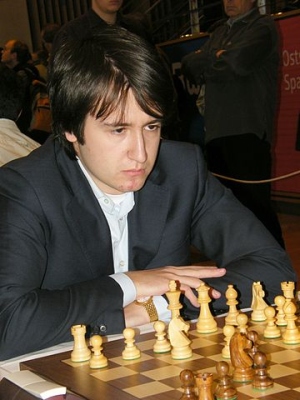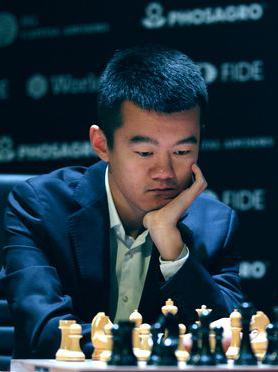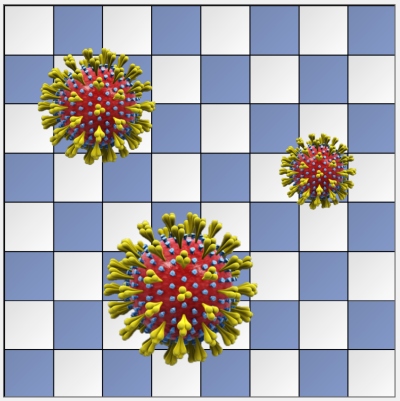The Candidates tournament to decide who will challenge Magnus Carlsen for the world title finished last week with Ian Nepomniachtchi emerging victorious. If Nepo goes on to beat Carlsen that may be the thing that people remember most about the tournament, otherwise it is always likely to be remembered as the Covid Candidates. The virus had an impact before and during the event and gave rise to a very unusual tournament.
Trouble Before Kick-off
The 8 player double round robin tournament was originally scheduled to run between 16th March and 3rd April 2020 in Yekaterinburg, Russia.
By January 2020 China was already heavily affected by Covid-19 and this impacted the two Chinese candidates, Ding Liren and Wang Hao. Ding Liren was in China but had to conduct his training camp online and then arrive in Russia by 2nd March to effectively quarantine for two weeks. Wang Hao had been in Japan when the virus started to bite and decided not to return to China and also conducted his training camp online. In March he travelled directly to Russia from Japan, avoiding the need to quarantine.

By March 2020 Covid-19 was starting to have a significant impact outside of China. Radjabov asked FIDE to postpone the tournament but they declined and so on 6th March, just 10 days before the start of the tournament, he withdrew. He said “The Candidates Tournament is a chess marathon, consisting of 14 rounds over 22 days. How the tournament will develop during this global epidemic, what measures will be taken in case of detection of the virus and what measures will be taken in relation to a sick participant, no one has explained to me… In connection with the above, I considered that such conditions can greatly affect the necessary level of concentration and mood required for the best possible play in such an important tournament as the Candidates, and a possible danger to the health of the players.”
Radjabov’s place was taken by Maxime Vachier-Lagrave, who had been on good form and who many had considered unlucky to not to have qualified in the first place.
So the final line-up, including the organisers’ wild card, Alekseenko, was:
| Candidate | World Ranking |
| Fabiano Caruana | 2 |
| Ding Liren | 3 |
| Alexander Grischuk | 4 |
| Ian Nepomniachtchi | 5 |
| Maxime Vachier-Lagrave | 8 |
| Anish Giri | 11 |
| Wang Hao | 12 |
| Kirill Alekseenko | 39 |
Before the start of the tournament Caruana and Ding were considered very strong favourites.
Start… Stop… Start Again: A Tournament Of Two Halves
Double round robins always have a feel of two distinct halves, but this one more than any other.
The first 7 rounds were completed on schedule on 25th March 2020. On 26th March, which was a rest day, FIDE announced the suspension of the tournament. Its stated rationale was that travel restrictions were being gradually tightened and if the tournament continued it could not guarantee the return of players and officials to their home countries.
At this point Radjabov asked to be reinstated having, in his view, been proven correct about the disruption to the tournament. FIDE, unsurprisingly, did not oblige him.
The restart of the tournament was scheduled for November 2020 but this was cancelled. Eventually the tournament was restarted on 19th April 2021 and completed on 27th April. With a duration of 1 year, 1 month and 11 days this is believed to be the longest ever first class tournament.
Of course it is impossible to say for sure how all these disruptions affected the players’ results but it is interesting to look at the two halves.
First Half – 2020
At the end of the first half the standings were as follows
| Rank | Player | Points |
| 1 | Vachier-Lagrave | 4.5 |
| Nepomniachtchi | 4.5 | |
| 3 | Caruana | 3.5 |
| Giri | 3.5 | |
| Wang | 3.5 | |
| Grischuk | 3.5 | |
| 7 | Ding | 2.5 |
| Alekseenko | 2.5 |
What stands out most in this table are world number 3 Ding Liren’s poor results; he had won 1, drawn 3 and lost 3 and was joint bottom of the table. Perhaps his disrupted preparation had a big impact on his play.

Photo by Vladimir Barskij CC BY-SA 3.0
At the other end both Nepo and Vachier-Lagrave looked in excellent form and had become the new favourites, though Caruana was still considered to be in with a realistic chance.
In the intervening year everyone was following the players’ form in online events. Nepo continued to play well, but Vachier-Lagrave had a succession of poor results.
Second Half – 2021
When the second half restarted, Vachier-Lagrave lost the first game to Caruana and in round 11 lost to Grischuk (this fascinating game is given at the end of this bulletin). He was then 1.5 points behind Nepo and despite winning his last two games the gap was too much to make up. For him it was a question of “if only there had been no break…”
Giri on the other hand was on a charge and rose to second place with wins against Wang Hao, Ding and Caruana in rounds 9, 11 and 12. The commentators were saying he had used the break very productively and was playing much more incisively than before. It looked like he had a real chance of catching Nepo but just when it seemed to be going so well he lost in the last two rounds. However, at least it had not been draw, draw, draw, as we have seen so often from Giri.

Photo by PrzemyslawJahr
GNU Free Doc License, V 1.2
But what of Ding? He finished the tournament strongly and despite his loss to Giri he “won” the second half, as the table below shows. For him it must have been a question of “if only Covid had not disrupted my 2020 preparation…”
| Rank | Player | Points |
| 1 | Ding | 4.5 |
| 2 | Nepomniachtchi | 4 |
| Caruana | 4 | |
| Giri | 4 | |
| 5 | Vachier-Lagrave | 3.5 |
| Grischuk | 3.5 | |
| 6 | Alekseenko | 3 |
| 7 | Wang | 1.5 |
Final Standings
With his main competitors having fluctuating results, Nepo’s consistent play meant he had the tournament wrapped up with a round to spare and could afford his last round loss to Ding.
| Rank | Player | Points |
| 1 | Nepomniachtchi | 8.5 |
| 2 | Vachier-Lagrave | 8 |
| 3 | Giri | 7.5 |
| Caruana | 7.5 | |
| 5 | Ding | 7 |
| Grischuk | 7 | |
| 7 | Alekseenko | 5.5 |
| 8 | Wang | 5 |

Photo by Etery Kublashvili CC BY-SA 3.0
World Championship Match
All being well, this match will take place in Dubai between 24th November and 16th December 2021. How should we assess Nepo’s chances against Carlsen?
He has some fine qualities that may help him. He appears fearless, happily entering complications and taking chances, his play is very concrete, he is very resourceful in all phases of the game, finding chances where others miss them, and he often plays quickly, putting time pressure on his opponents.
As with many people, his greatest strengths are also a source of his weaknesses. His play is a bit uneven and it can be brilliant or poor, in particular his fearlessness and quick play has led to a few disasters right out of the opening, and his concrete style means you don’t see too many strategic masterpieces from him.
Some people site his positive record against Carlsen as a reason to be optimistic for him. As juniors (there is only 4 months age difference between them) Nepo scored 2.5 – 0.5 against Carlsen – very impressive. But when you look at their results as adults it is less clear cut:
- At classical time limits Nepo as has +2 =5 -1 vs Carlsen. Nepo won a fine game in 2011 and benefitted from a Carlsen blunder in 2017 but returned the compliment by blundering in 2019 to give Carlsen his first classical victory against him.
- At rapid he has a disastrous +0 =2 -4
- And at blitz +0 =6 -2.
The bottom line is that there are too few games to draw any real conclusion, except to say the Nepo would have reason to be worried if the match goes to tie-breaks.
Carlsen’s himself has said, “He’s a very strong opponent. Somebody who also plays very aggressively and usually gives his opponents chances as well. In that sense, there is every chance there’s going to be an exciting match.”
Most people’s money quite literally appears to be on Carlsen. The bookies have:
- Carlsen 3/10
- Nepomniachtchi 23/10
Allowing for bookies’ profit margin, this suggests they currently believe that in 7 matches Carlsen will win 5 and Nepomniachtchi 2. Do you think they have this assessment about right?
Game
There were two outstanding games from round 11. Martin has already highlighted Anish Giri vs Ding Liren in Newsletter 24 with a link to Nakamura’s analysis of the game. If you haven’t already seen this game, I recommend it, not least for Giri’s superb 25.Nd6!!
The other was Alexander Grischuck vs Maxime Vachier-Lagrave. Grischuk played an offbeat line against the Sicilian and got a ferocious attack. Vachier-Lagrave found a stunning defence (31..Rd4!!) but just when he was over the worst he allowed Grischuk to reach a winning ending. Enjoy the twists and turns below.



